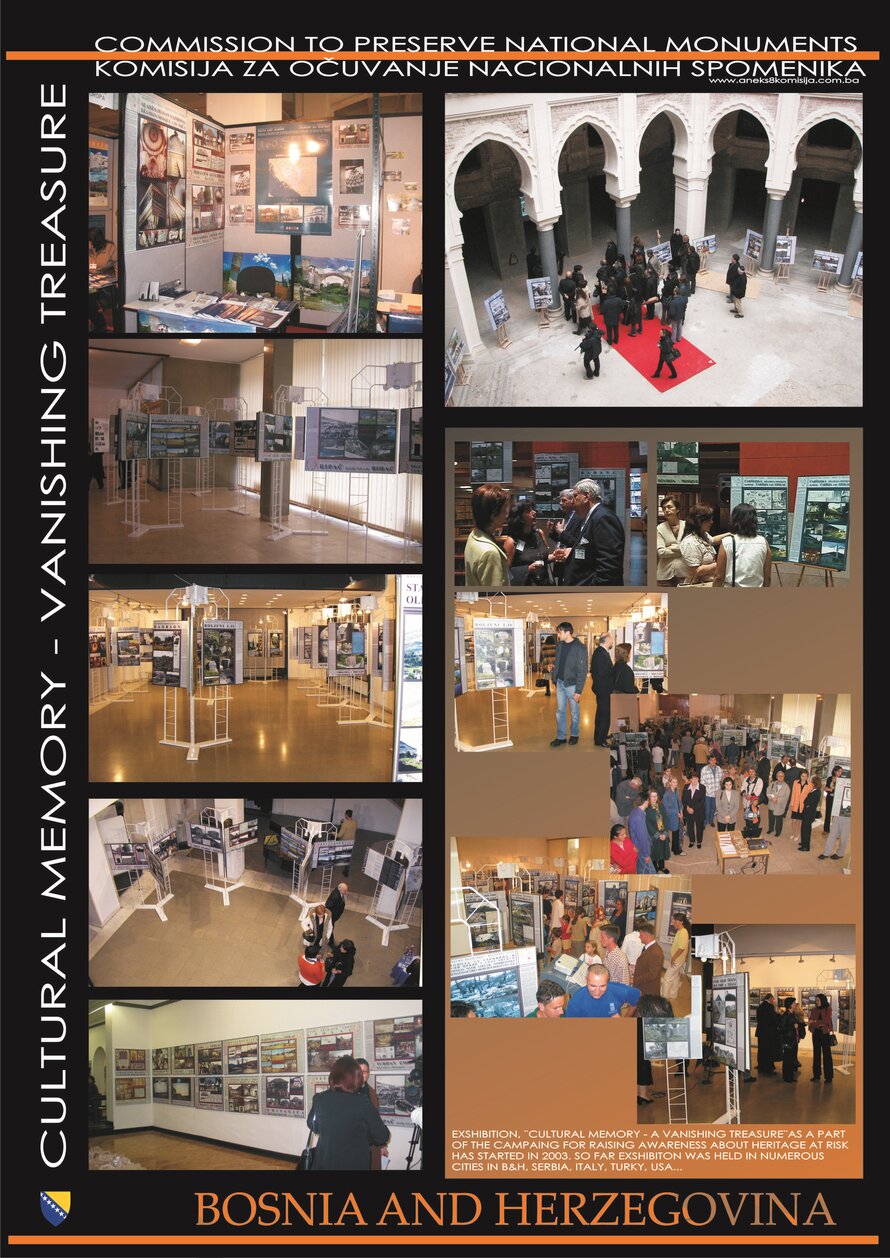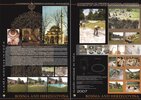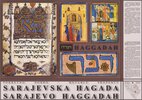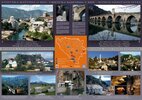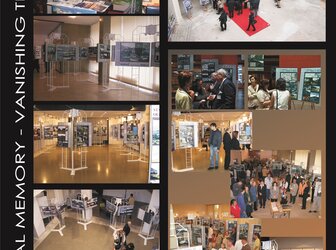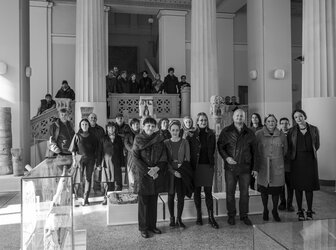Commission to preserve national monuments, Sarajevo
The Commission to Preserve National Monuments is an independent institution at the central level of Bosnia- Herzegovina established pursuant Annex 8 of the General Framework Agreement for Peace in Bosnia and Herzegovina and the Decision adopted by the Presidency of Bosnia and ...
Read more
Project details
| Title: | Commission to preserve national monuments, Sarajevo |
|---|---|
| Entr. year: | 2010 |
| Result: | Award |
| Country: | Bosnia and Herzegowina |
| Category type: | organisation |
| Architect / Proj.leader: | Dedicated service by individuals or organisations |
| The Jury's citation: | By incorporating the cultural heritage into the process of reconciliation and rebuilding civic trust, the commission has been crucially important in building sustainable peace in Bosnia Herzegovina. The means they are using within the framework at the Dayton Peace Agreement are an example to all European countries more directly applicable to other regions where heritage is affected by conflict. They have achieved this through a commitment to political independence , professionalism, training, education and public engagement. They have achieved this success against a background of the massive and deliberate destruction of the cultural heritage of Bosnia Herzegovina, a lack of funding and a weak institution and legal system. |
| Web, Links: | www.kons.gov.ba/index.php?lang=4 |
Description:
The Commission to Preserve National Monuments is an independent institution at the central level of Bosnia- Herzegovina established pursuant Annex 8 of the General Framework Agreement for Peace in Bosnia and Herzegovina and the Decision adopted by the Presidency of Bosnia and Herzegovina, based on the principles advanced by the European Commission and Council of Europe. The Commission is established after wanton and systematic destruction of cultural heritage in Bosnia- Herzegovina during the war 1992-1995 with a view to promoting the heritage as a generator and one of the principal resources for stimulating social rehabilitation, reconciliation and sustainable development. It is the first time in history of Europe that an institution dealing with the cultural heritage is charged, in accordance with an international accord, with treating the heritage as a peace implementation and conflict resolution tool and with introducing European standards of heritage protection into a society that is both in transition and undergoing post-war reconstruction. The Commission has helped to change public access and advance fundamental human rights throughout Bosnia and Herzegovina and sets an example of how to solve the problems of conflicts all over the world in which the cultural heritage is used as a tool and target of the destruction of societies. The Commission has been fulfilling these tasks with full commitment and achieved extremely visible results in a short period of its existence 2002-2009. The activities were focused on designation of cultural heritage as national monuments, launching campaign on protection of endangered monuments, rising awareness of the heritage for preserving the identity of Bosnia and Herzegovina, and sustainable peace implementation, rising funds for the rehabilitation of monuments, direct implementation of conservation projects and creation of a publicly approachable database on Bosnian, Croatian, Serbian and English language on Bosnia-Herzegovinian cultural heritage. The work of the Commission constitutes direct implementation of the civilian section of the Peace Accord, contributes to preserving the unity of diversities in Bosnia and Herzegovina and to the process of return of refugees and displaced persons, and is central to resolving issues that could develop into a threat to political and security stability in Bosnia and Herzegovina. This role of Commission can be used as an example in the region and worldwide how cultural heritage can contribute to the conflict resolutions. The Commission is a small team composed of: 5 commissioners and 22 experts in secretariat with full commitment to protect cultural heritage in the most complicated circumstances for the heritage itself and this team has achieved significant results through adding additional value to the understanding of the European Heritage.
